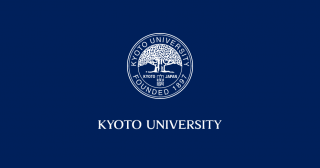The Graduate School of Advanced Integrated Studies in Human Survivability (GSAIS) has extended its memorandum of understanding on an academic partnership with the Centre for the Study of Existential Risk (CSER), University of Cambridge, originally signed in 2018 [1].
The University of Cambridge is one of the oldest universities in the world and ranks third in the Times Higher Education World University Rankings 2023. It operates on the traditional British college system and is comprised of 31 colleges. CSER is a research institute dedicated to the study of human survival risks, established within the University of Cambridge by prominent astronomer Lord Martin Rees and others in 2012 and actively engaged in research since 2015.
The MoU extension ceremony took place 17 January at CSER, with Professor Yosuke A Yamashiki representing GSAIS and delivering a lecture: "Prioritization of Different Kinds of Natural Disasters and Low-Probability, High-Consequence Events – How to prioritize space-based disaster at our 'Space Age' and establish 'Three-core' concept" [2]. Also attending from GSAIS was Ms Kiana Tomita, a current student and prospective exchange researcher at CSER with a master's degree from the University of Cambridge's Faculty of Asian and Middle Eastern Studies. She had been involved in the MoU extension process and is anticipated to play an active role in the academic exchange between the two institutions in the coming fiscal year, which begins in April 2023.
The first GSAIS-CSER collaboration took place in November 2016, when the former invited two researchers from the latter to its fifth international symposium, which generated a lively discussion on a wide variety of disaster risks [3]. In the following month, GSAIS Associate Professor Hiroaki Isobe, currently at Kyoto City University of Arts, presented at CSER's first international symposium.
In October 2017, Lord Rees met with three GSAIS researchers — Professor Yamashiki, Associate Professor Hiroaki Isobe, and Professor Kazunari Shibata (currently professor emeritus) — during his visit to Japan for an annual gathering of the Science and Technology in Society forum (STS forum) to discuss a possible CSER-GSAIS partnership. The meeting resulted in an agreement on collaboration in (1) joint-research funding applications, (2) regular joint research workshops, and (3) faculty exchange. The two sides subsequently signed their MoU, under which Mr Daikichi Seki, then a GSAIS student (currently a post-doctoral fellow at Kyushu University), trained at CSER as a research affiliate from May 2019 to April 2020 [4].
In discussing the extension of their partnership, GSAIS and CSER agreed to further promote (1) student and researcher exchanges, (2) joint research, and (3) the publication of collaboration results. The extended MoU will allow researchers from the two institutions to jointly work on a broad range of risk-related topics, including cascading natural risks, community responses, and the role of space technology in risk mitigation. In the meantime, GSAIS and CSER intend to proceed first with exchanging researchers and organizing joint events.


Related links
- Report at the CSER website:
CSER extends MoU with Kyoto University's GSAIS
Report on the original MoU at the KyotoU website:
GSAIS signs MoU with University of Cambridge's Centre for the Study of Existential Risk (19 January 2018) - The lecture was based on the following:
- Moe Fujita, Tatsuhiko Sato, Susumu Saito, Yosuke A. Yamashiki (Corresponding Author) (2021). Probabilistic Risk Assessment of Solar Particle Events Considering the Cost of Countermeasures to Reduce the Aviation Radiation Dose. Scientific Reports. 11, Article number: 17091
- Moe Fujita and Yosuke Yamashiki, Prioritization of Different Kinds of Natural Disasters and Low-Probability, High-Consequence Events, Journal of Disaster Research Vol.17 No.2, 202
- Related content:
- GSAIS: Fifth International Symposium on Human Survivability
- Kyoto University OpenCourseWare (OCW): Fifth International Symposium on Human Survivability "Disasters and Human Survivability: Enhancing Resilience to Risks Threatening the Future of Humanity"
- Papers from the workshop:
Journal of Disaster Research
- Introduction at the CSER website:
Centre for the Study of Existential Risk: Daikichi Seki





